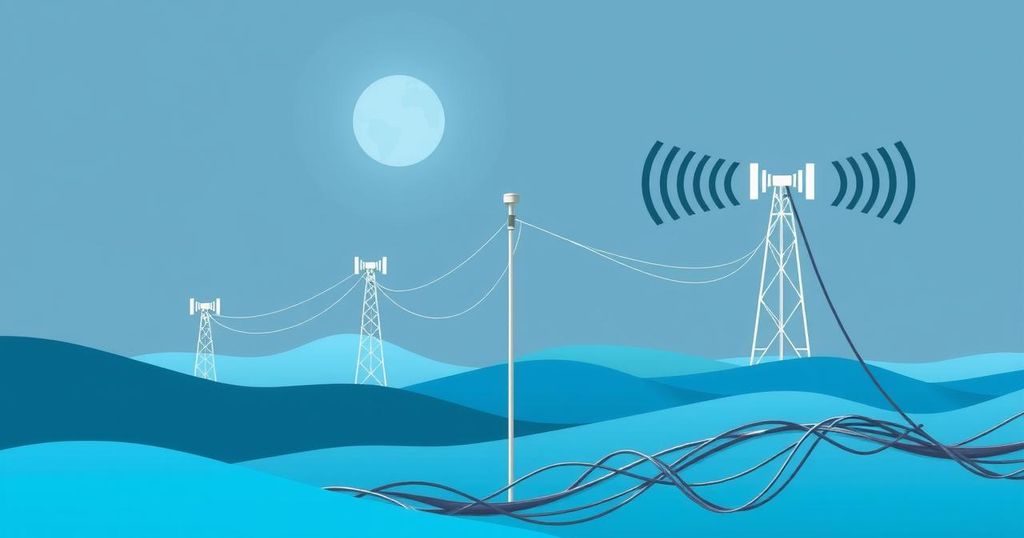CITAD Highlights Dangers of Rising Data Costs in Nigeria, Urges Action

CITAD has warned that increasing data costs will aggravate Nigeria’s digital divide, making online services less accessible for underserved communities. The recent 50% increase in tariffs has particularly affected students and marginalized groups. CITAD advocates for policy reforms and support for community networks to foster better connectivity solutions.
The Centre for Information Technology and Development (CITAD) has expressed significant concern regarding the escalating costs of internet data in Nigeria. This increase is expected to exacerbate the nation’s already pronounced digital divide, ultimately leaving numerous underserved communities without essential online services. Haruna Adamu Hadeija, CITAD’s Community Network Coordinator, articulated these concerns during a press briefing at the CITAD office in Kano.
Hadeija indicated that the recent 50% increase in tariffs on data, calls, and SMS, as approved by the Nigerian Communications Commission (NCC), poses a challenge for communities already facing connectivity issues. He stated, “Now that data charges have been jerked up by 50%, students and parents in underserved areas have to ‘dearly’ pay to enable their children to learn online.” This pricing escalation not only widens the connectivity gap but also hinders the digital advancement of millions of Nigerians.
Despite progress in expanding internet access, an estimated 27.91 million individuals in 97 underserved communities remain offline, as highlighted by a 2022 report from the Universal Service Provision Fund (USPF). Hadeija noted that this lack of access disenfranchises students, youth, and women, particularly those residing in rural areas, who face challenges in accessing educational resources.
“In regions where internet access is absent, parents must send their children far from home just to register for computer-based tests, conduct exams, and check their results,” Hadeija remarked. He underscored the injustice faced by many communities left behind due to unaffordable internet services.
To address the growing digital divide, Hadeija called for immediate policy reforms. He urged the Minister for Digital Economy to formally recognize community networks as additional connectivity providers. Furthermore, he appealed for support from the USPF to provide local community grants for developing their own connectivity solutions. “These community networks are not competitors to Mobile Network Operators (MNOs); they are complementary solutions to bridge the existing connectivity gap,” he stated.
CITAD emphasized the necessity for capacity-building programs aimed at empowering local communities in resource mobilization and sustainability, thereby creating self-sufficient, community-centered networks that can enhance connectivity.
The rising cost of internet data in Nigeria, facilitated by a 50% tariff increase, jeopardizes access to essential online services, particularly for underserved communities. With millions lacking adequate connectivity, urgent policy changes and support for community networks are imperative. Empowering local initiatives could serve as a viable solution to bridge the digital divide, fostering greater accessibility and equality in educational opportunities across the country.
Original Source: dailypost.ng








